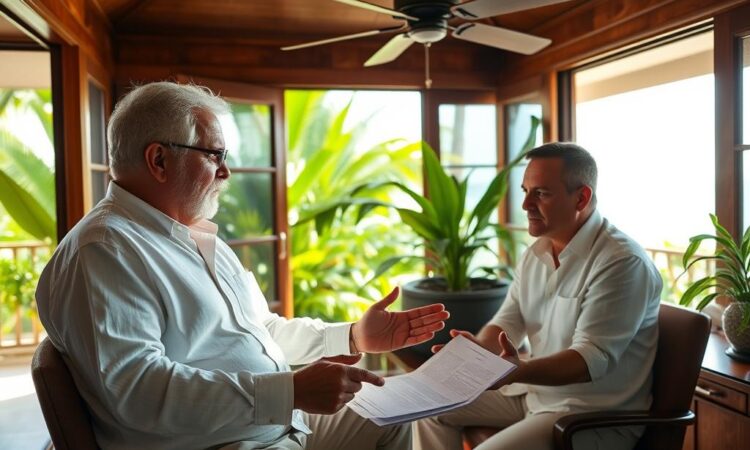
What Documents Do Borrowers Need to Borrow Money in Costa Rica – Understanding the Process
Have you needed to borrow money in Costa Rica and wondered what documents are required? It can be challenging to navigate this foreign country’s financial world. People often ask, “What Documents Do I Need to Borrow Money in Costa Rica?” Knowing the necessary steps for real estate, business, or personal loans is key. This article will walk you through what you need to do to get a loan in Costa Rica.
Key Takeaways
- Understand the lending landscape in Costa Rica, including government-owned state banks and privately-owned banks
- Learn about the residency status requirements and how they impact your eligibility for borrowing money
- Discover the essential personal identification, financial, and utility documents needed to apply for a loan
- Explore the additional documents required for corporate borrowers, such as business financial statements and bylaws
- Discover how GAP Investments can provide flexible loan options and competitive interest rates in Costa Rica
Understanding the Costa Rican Lending Landscape
In Costa Rica, you can borrow from government-owned and privately-owned banks. Each has its own loan rules and requirements. So, if you’re looking into costa rica lending institutions, be sure to know the key differences.
Government-owned State Banks
Places like Banco Nacional and Banco de Costa Rica have tough rules for loans. They might ask for things like being a resident, good credit, and a steady job. Also, getting a loan from them means lots of paperwork and documents.
Privately-owned Banks
For those looking into expat borrowing in costa rica, privately-owned banks might be easier. They could be more open to giving loans to foreigners in costa rica. Even so, it’s smart to check out what various private banks offer to find the best option for you.
Residency Status and Borrowing Eligibility
Whether you pick a government or private bank, being a legal resident matters a lot. Permanent residents usually find it easier to get loans. But, if you’re just staying here temporarily, getting a loan might be harder.
Documents Required for Borrowing Money in Costa Rica
When you need to borrow money in Costa Rica, it’s important to get your documents ready. You’ll need to have a copy of your passport or residency card with you. Also, bring a reference letter from your bank, last year’s tax return, and 12 months of bank statements. Don’t forget a copy of a utility bill and a Know Your Customer Form.
The loan documentation costa rica changes based on if you’re a resident or not. It also depends on if you’re applying as an individual or a company. But, having these key documents for loans costa rica will help with the costa rica lending regulations and loan application process costa rica.
If your loan is tied to a house or land, you’ll need more documents. This includes the property’s appraisal report and purchase contract. Knowing about these costa rica financial documents for loans is key for navigating borrowing regulations costa rica.
| Document | Purpose |
|---|---|
| Passport or Residency Card | Proof of identity and legal status in Costa Rica |
| Bank Reference Letter | Demonstrates your creditworthiness and banking history |
| Tax Return | Verifies your income and financial stability |
| 12 Months of Bank Statements | Provides a detailed record of your financial transactions |
| Utility Bill | Confirm your residential address in Costa Rica |
| Know Your Customer Form | Helps lenders comply with anti-money laundering regulations |
By preparing the documents for borrowing money early, you make getting a loan smoother in Costa Rica. Having these Costa Rica lending regulations and the loan application process in order is crucial for getting the financing you need.
What Documents Do Borrowers Need to Borrow Money in Costa Rica
Borrowing money in Costa Rica requires us to gather some essential documents. We need a personal ID, financial proof, utility bills, and a KYC form. All these papers play a vital role in confirming who we are and our financial stability.
Personal Identification Documents
For personal identification, we must show a copy of our passport or residency card. This proves our identity and the right to borrow money in Costa Rica.
Financial Documents
Proof of income is key, and documents like tax returns and bank statements help with this. We should also share details about any property we own or assets we have. This info supports our application by showing our financial past and current worth.
Utility Bill
A recent utility bill, such as for electricity or water, confirms our current address in Costa Rica. It’s a crucial piece of the puzzle when applying for a loan.
Know Your Customer Form
The KYC form is a must for anyone seeking a loan in Costa Rica. It ensures lenders follow strict rules against money laundering and that we fit the loan’s requirements.
Additional Documents for Corporate Borrowers
When you want to borrow money for a corporation in Costa Rica, extra papers are needed. This paperwork shows lenders how strong your business is financially.
Certificate of Corporate Standing
First, you need a certificate of corporate standing. This says your corporation is in good standing under Costa Rican law.
Shareholder Disclosure Certification
You also have to provide a shareholders’ list. It tells who owns part of the business and how it’s shared.
Financial Statements and Cash Flow Projections
Lenders will ask for detailed financial statements and cash flow predictions. These must be checked by a certified public accountant. They help lenders see your business’s financial health and future plans.
Corporate Bylaws
You must give a copy of your corporation’s bylaws too. Bylaws set rules for how the company runs. They let lenders know how your business makes decisions.
Having these documents ready shows Costa Rican lenders, like GAP Investments, that your loan request is solid. It proves your company is in a good place financially.
GAP Investments: A Trusted Lending Partner in Costa Rica
GAP Investments is known for being a reliable loan provider in Costa Rica. They offer many kinds of loans. You can get help to remodel your home, start a new business, or even buy a car. They are there for you in many different situations.
Loan Amounts and Eligibility
GAP Investments loans start at $50,000 and go up to $350,000, or even higher for big projects. They welcome both residents and non-residents. This ensures everyone has a chance to get the financial help they need.
Loan Purposes
They offer various loans like Costa Rica private lender, Costa Rica equity loans, and Costa Rica hard money loans. Their services cover many needs. You could finance a business venture or a personal project with their support.
Competitive Interest Rates
GAP Investments’ interest rates start from 12% and can go up to 18% annually. These rates make their loans a great choice for people looking for good costa rica maximum LTV options. This is ideal for those with clear financial goals.
Flexible Loan Terms
They understand that everyone’s situation is different. So, GAP Investments offers loan terms from 6 months to 3 years. This way, you can pick a repayment plan that works best for you and your investment.

Getting Started with GAP Investments
If you need a loan in Costa Rica, GAP Investments is a top choice. They offer expert support for all your loan inquiries. You can start by visiting their website, finding them through a search, or by word of mouth. After first touch, you’ll complete an online loan request and can ask questions. GAP Investments will then assess your situation, check the property, and help set up the best loan features for you.
GAP Investments serves various lending needs, including loans from $50,000 to over a million for big projects. You can learn about their loan process with the GAP Investments loan referral program. Their detailed review of loan applications, checking legal records, tax standing, and your repayment capability, is to make sure the loan is safe for you and them.
The GAP Investments loan application process begins by contacting us and submitting a request. Then, they check the property, review the loan, and work on finding an investor. Their team helps in making loan terms, gathering official documents, and handling registrations in Costa Rica. GAP Investments also focuses on helping you after the loan, making sure payments are on track, and offering support in renewing loans, keeping it all secure and dependable.

Conclusion
To borrow money in Costa Rica, you need a good grasp of how lending works there. It’s key to know what you must submit. This is true for both locals and foreigners. The Costa Rica loan requirements and Costa Rica lending regulations are very important. They help you get a loan.
For a loan, you may need several documents. These can vary by whether you’re an individual or a company. Loan application documents in Costa Rica may require your passport, bank references, tax records, and other supporting documents. For companies, the list might include business standing papers and financial reports.
Still unsure about the papers required for a Costa Rican loan? Talk to GAP Investments. They’re experts in Costa Rican lending regulations and loans. They’ll make the process clear and smooth. With them on your side, getting a loan in Costa Rica becomes a lot easier.
FAQ
What are the main types of banks in Costa Rica?
How does my legal residency status in Costa Rica affect my ability to borrow money?
What personal documents do I need to borrow money in Costa Rica?
What additional documents are required if I’m borrowing money in the name of a corporation?
What are the benefits of borrowing money through GAP Investments in Costa Rica?
How can I get started with borrowing money through GAP Investments in Costa Rica?
Source Links
- https://gapinvestments.com/en/what-documents-do-i-need-to-borrow-money-in-costa-rica/
- https://www.gapequityloans.com/en/hard-money-loan-procedures-in-costa-rica/
- https://www.gapequityloans.com/en/understanding-loan-terms-in-costa-rica/
- https://crlaw.info/info/real-estate/mortgages/non-resident-financing/
- https://www.specialplacesofcostarica.com/blog/how-to-get-a-mortgage-in-costa-rica/
- https://www.gapequityloans.com/en/private-money-lending-in-costa-rica-2/
- https://gapinvestments.com/en/inner-circle/
- https://gapinvestments.com/en/about-the-loan-process-in-costa-rica/
- https://gapinvestments.com/en/costa-rica-investments/
- https://www.gapequityloans.com/en/costa-rica-home-equity-loans-guide/
- https://gapinvestments.com/en/home-loans-in-costa-rica/
- https://www.gapequityloans.com/en/is-it-hard-to-get-a-mortgage-in-costa-rica-2/
- https://gapinvestments.com/en/faq/
- https://gapinvestments.com/en/secure-loans-in-costa-rica/
Article by Glenn Tellier (Founder of CRIE and Grupo Gap)
